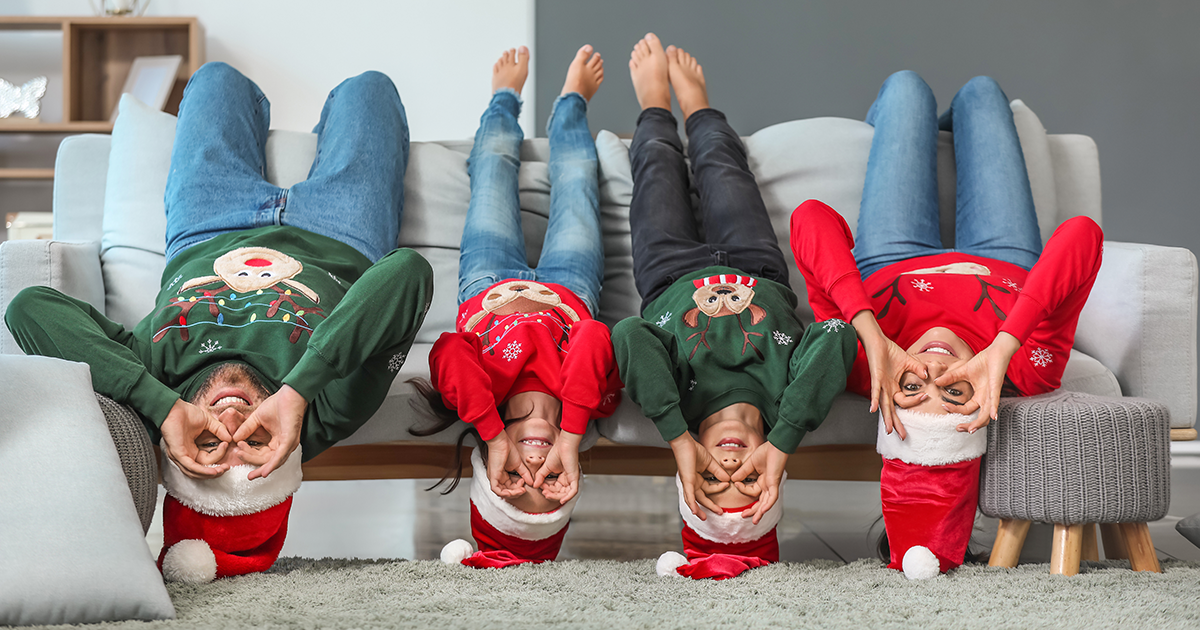Remember what Ralphie’s mother (and others) told him about getting a BB gun from Santa in the movie “A Christmas Story”?
They were right. The young lad almost shot his eye out when pulling the trigger aimed at a metal sign in his backyard on Christmas morning.
Although government regulatory agencies and consumer product organizations have helped alter and – in some cases eliminate – dangerous toys that put children at risk (especially their eyesight), some danger still exists.
Of course, today’s toys are more focused on technology – which has its inherent dangers. Too much screen time on cell phones, tablets and desktop computers can lead to eye conditions such as myopia. That’s why some parents are asking Santa to leave blue-light-blocking glasses under the tree.
The America Academy of Ophthalmology answers these questions about gift buying for children this holiday season.
How Can You Tell Which Toys are Safe for Your Kids?
Eyes are particularly vulnerable to injuries. And serious injuries to the eye can have life-long effects. Commonly reported injuries from toys include corneal abrasions and ocular hyphema. More severe trauma can lead to retinal detachment, ruptured eyeballs, and even blindness.
The good news is that most eye injuries can be easily prevented by following a few key safety tips:
- Avoid purchasing toys with sharp, protruding or projectile parts.
- Make sure children are appropriately supervised when playing with potentially hazardous toys or games that could cause eye injuries.
- Check the labels of laser products for evidence that the device complies with 21 CFR (the Code of Federal Regulations) Subchapter J.
- If you give sports equipment, also give the appropriate protective eyewear with polycarbonate lenses.
- Check labels for age recommendations and be sure to select gifts that are appropriate for a child’s age and maturity.
- Keep toys that are made for older children away from younger children.
What are Some Safe, Screen-Free Gift Ideas?
Taking frequent breaks from phones and computers is a good way to decrease eye strain. Stepping away from screens and out into the sun may also help decrease myopia, or nearsightedness, in kids.
Some eye-safe holiday gift ideas include:
- Arts and craft supplies to get the creative juices flowing are a fun gift for all ages. Paint sets, coloring books, easels, jewelry beads for younger kids or knitting/sewing kits for older kids are a few ideas. Just make sure to check the recommended age group on each of these before buying.
- Outdoor-inspired gifts. Sports equipment like snow gear, roller skates, a trampoline, hiking boots, or the classic bicycle gift are all good ways to encourage healthy outdoor play. Have a kid athlete in your life? Get them the right protective eyewear for their sport of choice. For skiers or snowboarders, that means UV-protected goggles, cold weather does not shield the eyes from the sun!
- Educational games for all ages. As your toddler’s hand-eye coordination and fine motor skills naturally develop, toys such as building blocks or puzzles become easier to use. Age-appropriate board games for learning how to count, tell time, memory games, and other educational themes are good options. For older kids, find classic board games in foreign languages, such as Guess Who or Scrabble, to practice basic language questions and grammar in a new language.
- Social card games, such as Tabletopics Teen Edition or What Do You Meme, are great for getting teen eyes up and away from their phones and interacting with friends and family.
- Ugly produce food kit subscriptions will be sure to get a few laughs and secretly encourage eye-healthy eating. These services deliver good produce not being sold on farms for cosmetic reasons straight to your door. Cook a meal together as a family or set your master chef teen up for success with these nutritious ingredients. Just make sure to forward them a copy of these kitchen eye safety tips.
What If My Child Gets Injured?
If your child experiences an eye injury from a toy, seek medical attention right away. Contact VisionQuest Eyecare if you have questions or if your child’s vision needs attention.

Dr. Gaia Hess is a vision therapy and myopia management doctor with VisionQuest Eyecare. She’s passionate about pediatric eyecare and educating her young patients and their parents so they can understand what’s happening with their eyes and the best ways to improve their vision.

